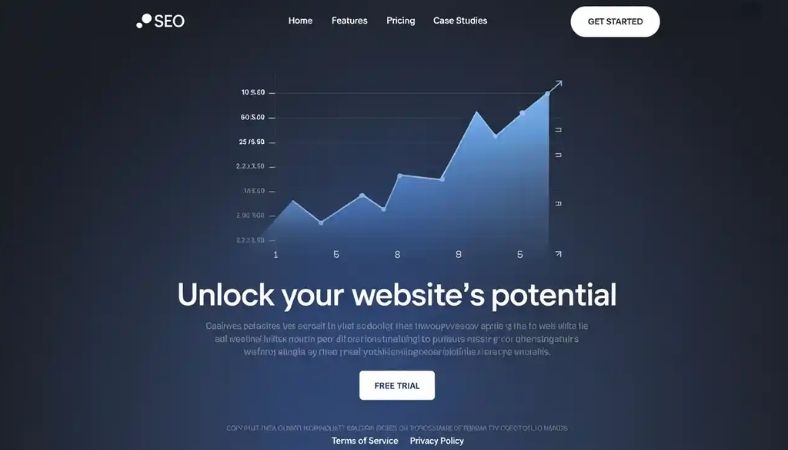Introduction
Local businesses thrive on visibility. Customers search for nearby services daily. Standing out in these searches is crucial. Local SEO keywords help achieve this goal. They connect businesses with local audiences effectively. This article explores local SEO keywords in depth. You’ll learn their importance and application. Expect actionable steps to optimize your strategy. Discover advantages, drawbacks, and expert insights. Let’s dive into boosting your local presence! Optimizing your GMB profile ensures accuracy. It also enhances discoverability for local customers.

What Are Local SEO Keywords?
Definition
Local SEO keywords target specific geographic areas. They include location-based terms in search queries. Think “coffee shop near me” or “Chicago dentist.” These phrases help search engines understand location intent. Businesses use them to attract nearby customers. They’re vital for small businesses and franchises alike.
Why They Matter
Search engines prioritize local results. Customers want quick, nearby solutions. Local SEO keywords bridge this gap. They ensure your business appears in relevant searches. Without them, you risk losing local customers. They drive foot traffic and online engagement. Optimizing for them boosts your visibility significantly.
Types of Local SEO Keywords
Keywords vary by specificity. Broad terms like “restaurant” attract wide audiences. Specific phrases like “Italian restaurant Miami” target niches. Implicit keywords, like “near me,” rely on user location. Long-tail keywords, like “best pizza in Seattle,” are highly targeted. Each type serves unique purposes. Choose based on your business goals.
How Search Engines Use Them
Search engines analyze keywords for relevance. They match user intent with business offerings. Location signals, like city names, guide results. Algorithms prioritize proximity and relevance. Proper keyword use improves your ranking. It ensures customers find you easily.
Common Misconceptions
Many think keywords alone guarantee success. They’re wrong. Keywords need context and strategy. Overstuffing hurts readability and rankings. Natural integration is key. Understanding user intent matters more than keyword volume.

Step-by-Step Guide to Using Local SEO Keywords
Step 1: Identify Your Target Audience
Know who your customers are. Are they locals or tourists? Understand their search habits. Use tools like Google Analytics. Analyze demographics and behavior. This informs your keyword choices.
Step 2: Research Local SEO Keywords
Use tools like Google Keyword Planner. Explore competitors’ keywords. Look for location-specific terms. Focus on low-competition, high-traffic keywords. Long-tail keywords work best for niche markets. List at least 10-15 relevant terms.
Step 3: Analyze Search Intent
Understand why users search. Are they seeking services or information? Match keywords to intent. For example, “buy flowers Boston” shows purchase intent. “Florist hours Boston” seeks operational details. Align content with user needs.
Step 4: Optimize Your Website
Place keywords in key areas. Include them in titles and meta descriptions. Use them in headers and body text. Ensure natural integration. Avoid keyword stuffing. Optimize for mobile users too.
Step 5: Leverage Google My Business
Claim your Google My Business profile. Add accurate business details. Include local SEO keywords in descriptions. Update categories and services. Encourage customer reviews. This boosts local search visibility.
Step 6: Create Location-Specific Content
Write blogs targeting local audiences. Mention local events or landmarks. Use keywords in blog titles. Create city-specific landing pages. Share local success stories. This strengthens your local relevance.
Step 7: Monitor and Adjust
Track keyword performance regularly. Use tools like SEMrush or Ahrefs. Check rankings and traffic. Adjust keywords based on results. Experiment with new terms. Stay updated on algorithm changes.
Step 8: Build Local Backlinks
Partner with local businesses. Guest post on local blogs. Sponsor community events. Include keywords in anchor text. Backlinks boost authority and rankings. Focus on quality over quantity.
Step 9: Use Social Media
Promote content on social platforms. Share location-specific posts. Engage with local audiences. Use hashtags with local SEO keywords. Social signals enhance search visibility. Consistency matters.
Step 10: Analyze Competitors
Study competitors’ keyword strategies. Identify gaps in their approach. Target underserved keywords. Use tools like SpyFu. Stay ahead by adapting quickly. Competitor analysis refines your strategy.

Advantages of Local SEO Keywords
Increased Visibility
Local SEO keywords boost search rankings. They make your business discoverable. Customers find you faster. This drives more traffic.
Targeted Traffic
Keywords attract relevant customers. They match user intent perfectly. You get high-quality leads. Conversion rates improve significantly.
Cost-Effective Marketing
Local SEO is budget-friendly. It targets specific audiences. You spend less than on broad campaigns. Results are measurable.
Builds Community Trust
Local keywords show community focus. Customers trust nearby businesses. This fosters loyalty. Positive reviews amplify trust.
Competitive Edge
Small businesses compete with giants. Local keywords level the playing field. You dominate local searches. This attracts more customers.
Disadvantages of Local SEO Keywords
Limited Reach
Local keywords target specific areas. They don’t attract global audiences. Scaling beyond local markets is tough.
High Competition
Popular local terms are competitive. Ranking for “dentist New York” is challenging. Small businesses may struggle initially.
Constant Maintenance
Keyword trends change fast. Regular updates are necessary. Monitoring takes time and effort. Neglect hurts rankings.
Risk of Over-Optimization
Stuffing keywords harms readability. Search engines penalize over-optimization. Natural content performs better. Balance is critical.
Dependence on Tools
Effective keyword research needs tools. Free tools have limitations. Paid tools can be expensive. This impacts budgets.
FAQs About Local SEO Keywords
What Are Local SEO Keywords?
They’re phrases targeting geographic areas. They help businesses attract local customers. Examples include “bakery in Denver.”
How Do I Find Local SEO Keywords?
Use tools like Google Keyword Planner. Analyze competitors and local trends. Focus on long-tail, location-specific terms.
Why Are Local SEO Keywords Important?
They boost local search visibility. They drive targeted traffic. Businesses reach nearby customers effectively.
Can I Use Local SEO Keywords Without a Website?
Yes, via Google My Business. Optimize profiles with keywords. Social media also helps.
How Often Should I Update My Keywords?
Review every 3-6 months. Monitor performance regularly. Adjust based on trends and results.
Do Local SEO Keywords Work for All Businesses?
They’re best for local-focused businesses. Global businesses may need broader strategies. Effectiveness varies by industry.
Bonus Points: Advanced Tips for Local SEO Keywords
Voice Search Optimization
Optimize for conversational queries. People use voice assistants daily. Phrases like “best café near me” are common. Include natural, question-based keywords. This boosts voice search rankings.
Schema Markup
Add schema markup to your website. It helps search engines understand content. Use local business schema. Include keywords in structured data. This enhances search result features.
Local Citations
List your business on directories. Use consistent NAP (Name, Address, Phone). Include keywords in descriptions. Citations improve local authority. Ensure accuracy across platforms.
User Experience Focus
Prioritize fast-loading websites. Ensure mobile-friendliness. Use keywords in intuitive navigation. Good UX retains visitors. It signals quality to search engines.
Track Local Trends
Monitor local news and events. Incorporate trending topics into content. Use relevant local SEO keywords. This keeps content fresh and engaging.
Conclusion
Local SEO keywords are game-changers for businesses. They drive targeted traffic and boost visibility. Proper use ensures local customers find you. Follow the step-by-step guide for success. Leverage tools and monitor performance. Understand advantages like cost-effectiveness and trust-building.
Acknowledge drawbacks like limited reach. Regular updates keep your strategy sharp. Experiment with advanced tactics for extra impact. Start optimizing today to dominate local searches!

